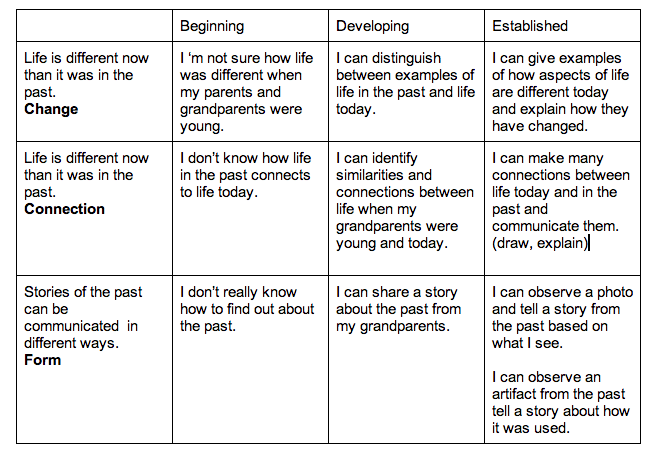A tweet by @wmchamberlain which caught my eye the other day, was the catalyst for this 10 ways post.

Today’s #edchat discussion about the arts got me thinking further (as always). The arts can be integrated across other disciplines and can add another powerful layer to learning, be it history, maths, literature or bible! (but that can be another post). For now, why not replace some traditional testing with opportunities for creative expression? I’ve included some such options in my list of alternative assessments.
Every one of these tasks includes natural differentiation for different levels of ability. They are written in general terms and can be adapted and applied as required. Use the ideas individually or combine aspects of different ones.
1. Create a cartoon.
Use the online cartoon creator, ToonDoo, to create a cartoon (or toonbook) which demonstrates your knowledge, explains your thinking about a topic or illustrates your understanding of a concept.
2. Produce a play.
Work with your group to produce and present a play which demonstrates what you have learnt. Make sure to include your own interpretation and analysis. Show how your new knowledge can be applied in other contexts.
3. Make a video.
Make a video to demonstrate your learning. Your video can include acting or singing. You might create an animation or a documentary. Show what your have understood and add your own interpretation.
4. Create a slideshow.
Select a series of images that relate to your learning. Take your own photographs to include in your slideshow. Include your own paintings. Make connections between the images and what you have learned. Add text that explains why you have chosen (or created) these particular images.
5. Thinking routines.
Create a headline that shows your understanding of the topic. Choose a colour, symbol and image to represent the essence of what you have learned. Explain how your thinking has developed using the ‘I used to think, now I think’ routine. (More options at PZ Visible Thinking )
6. Write a blog post.
Write a blog post that shows your learning, or clarifies your thinking. You might choose to express yourself through poetry or narrative, or any genre of your choice. Remember you are writing for an authentic audience who might respond and ask questions. Add appropriate images. Include a reflection on your learning.
7. Compose a song.
Compose a song that expresses your learning, understanding or opinions. Compose your own music or write new lyrics that can be sung to the melody of an existing song. Collaborate with other musicians to compose and present your piece.
8. Solve a problem.
Use your skills and knowledge to provide a solution (or solutions) to a real life problem posed by your teacher. Show how you can apply your learning in a different context. Or create your own problem. Exchange with a peer and solve each others’.
9. Concept mapping.
Show your understanding of how the different parts of your learning are connected using a graphic organizer. Use a thinking map from Exploratree, one provided by your teacheror create one of your own. Show the development of your ideas by creating a concept map in Spicynodes.
10. Student choice.
Best of all. Present your understandings/ learning/ findings/analysis… in any way you like.
I know this post is an over-simplification. It depends on what you’re assessing. It might depend on who you’re assessing. And the purpose of the assessment. But irrespective of the age or ability of your students, whether you’re assessing skills, knowledge, understanding, technique or application of knowledge to other contexts… all of the above are valid, more engaging, more meaningful alternative to tests.
More posts in the ’10 ways’ series




